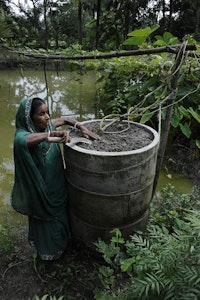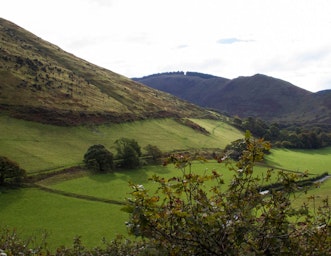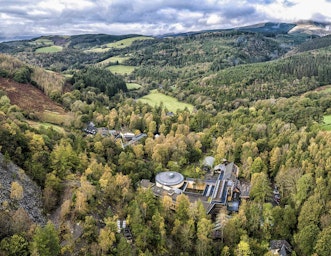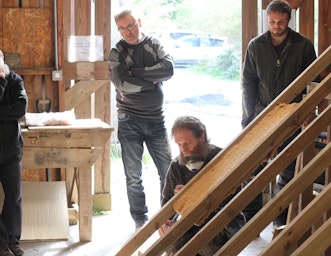
Global perspective: who is already adapting?
March 12, 2020Home » Global perspective: who is already adapting?
Across the world, many areas are already developing the tools to adapt to climate change, some with informal settlement change and some with more formal strategies. CAT MSc student Tanya Hawkes reports…
Multi-Criteria Analysis: Dhaka
In Dhaka, capital of Bangladesh, Multi-Criteria Analysis (MCA) is promoted as a method to prioritise vulnerable areas from flooding. The framework of MCA is designed to involve more stakeholders to try to strengthen the existing government adaptation plans. This more integrated assessment may help counter problems such as water ponds and other flood management tools being shelved to make way for greater urban development. The short term socioeconomic issues are often prioritised over tackling longer term climate change risks, and the MCA method hopes to reverse this situation.

Tarea Vida: Cuba
Tarea Vida (‘Project Life’) is part of a 100-year adaptation plan adopted in 2018 by Cuba’s Council of Ministers. No new build on low-level coastal areas, planned relocation of populations from affected areas, a rethink of the country’s current agricultural practices, and restoration of damaged habitats are some of the key goals. Cuba has a unique governmental system that prioritises health and education and state intervention, which might be a key component in their ability to plan adaptation.
Local democracy and participation: Kenya and Nicaragua
Urban Participatory Climate Change Adaptation Appraisals (UPCCAA) in Mombasa, Kenya and Estelí, Nicaragua are using the stories and evidence of local people to analyse how and where climate effects are worsening.
Involving groups that are usually marginalised from local and national decision-making is part of this participative process. For instance, Climate Defence Programmes that prioritise feedback from women who are responsible for the day-to-day management of water and food provide access to valuable local ecological knowledge and identification of potential risks through the gathering of these experiences.
Visioning and futuring: British Columbia and the Philippines
In British Columbia, Canada, a process called the Local Climate Change Visioning Project enables local stakeholders to visualise different future high to low carbon scenarios, plus the associated risks and benefits, as the beginning of local climate change mitigation and adaptation plans.
Participatory video making in the Philippines is bridging a gap between the traditionally voiceless youth and decision makers, in an experimental method. Youth as a previously marginalised group are helping to build resilience to climate change in their local areas.
About the author
Tanya researches climate adaptation solutions within a social justice framework. She has a postgraduate diploma in Environmental Policy and studies MSc Sustainability and Adaptation at CAT. She is a contributor to ‘Low Carbon Living 2050’, Palgrave Macmillan, and ‘Zero Carbon Britain: Rising to the Climate Emergency‘.
- Graduate School
- Zero Carbon Britain
- Climate Change
- Policy
Related Topics
Graduate School
Related news


CAT Conversations: Sandy Stevens, CAT graduate
17th April 2025
CAT Student Bursaries Announced for 2025
30th January 2025
CAT stories – Nick Parsons and Mike Russell
29th January 2025Email sign up
Keep up to date with all the latest CAT articles and blogs by signing up to our monthly newsletter and following us on Facebook and Twitter.
